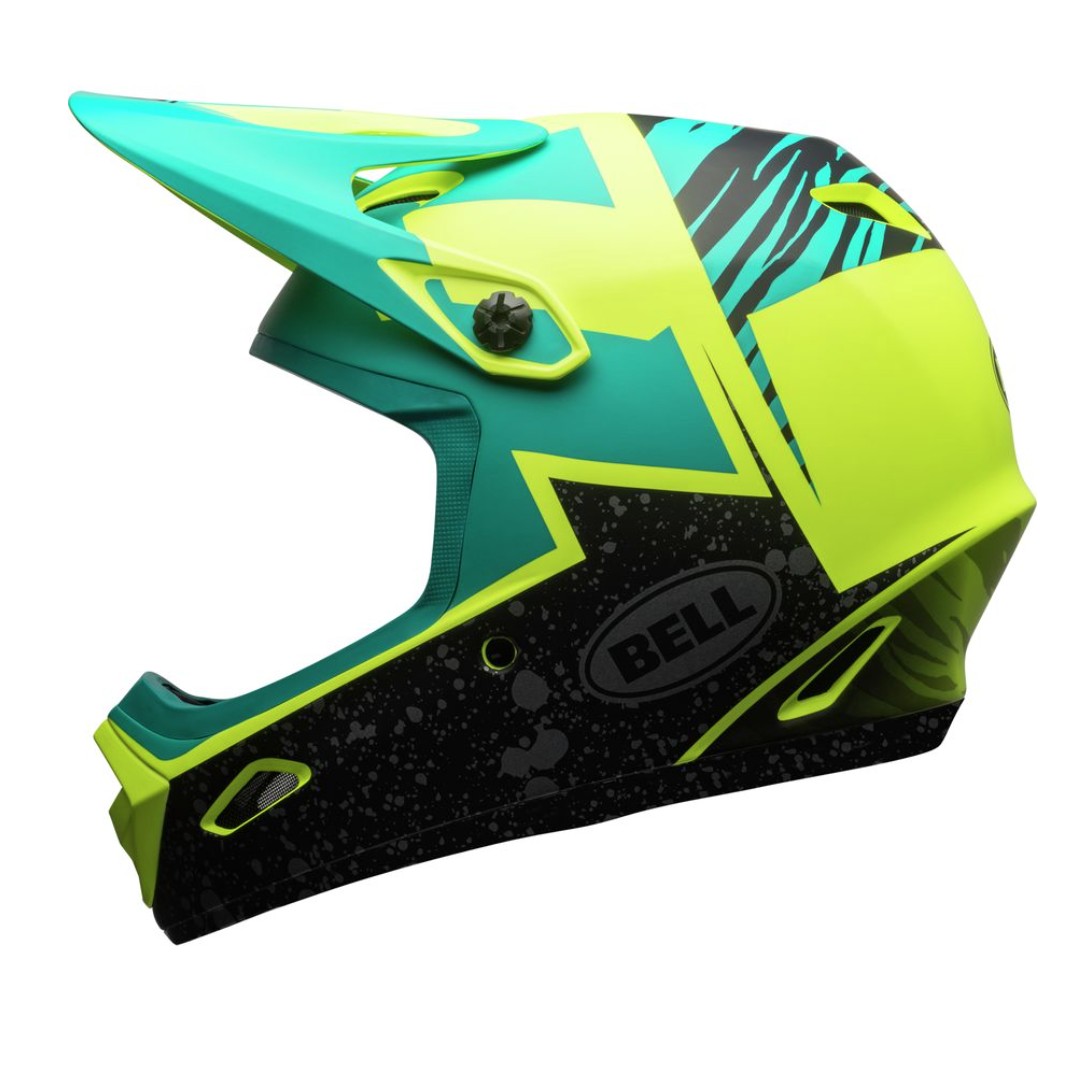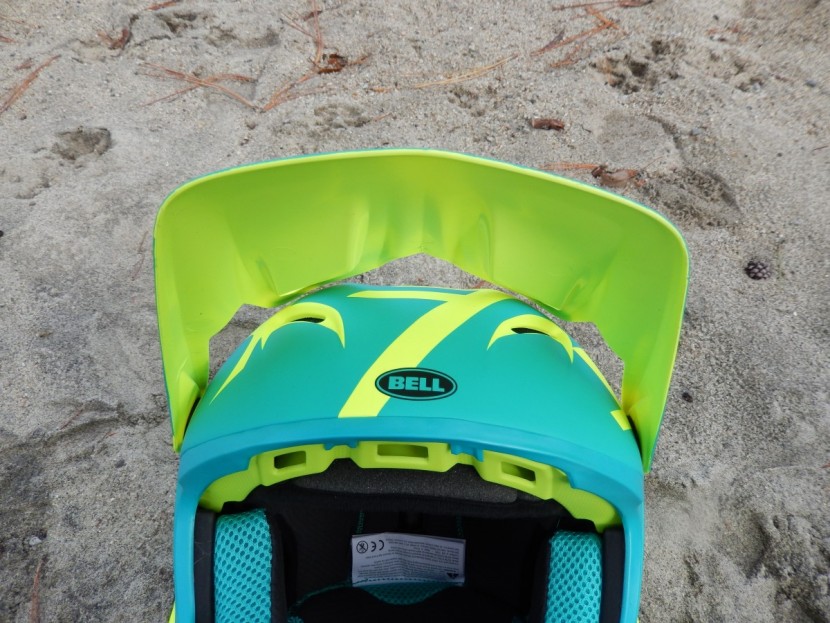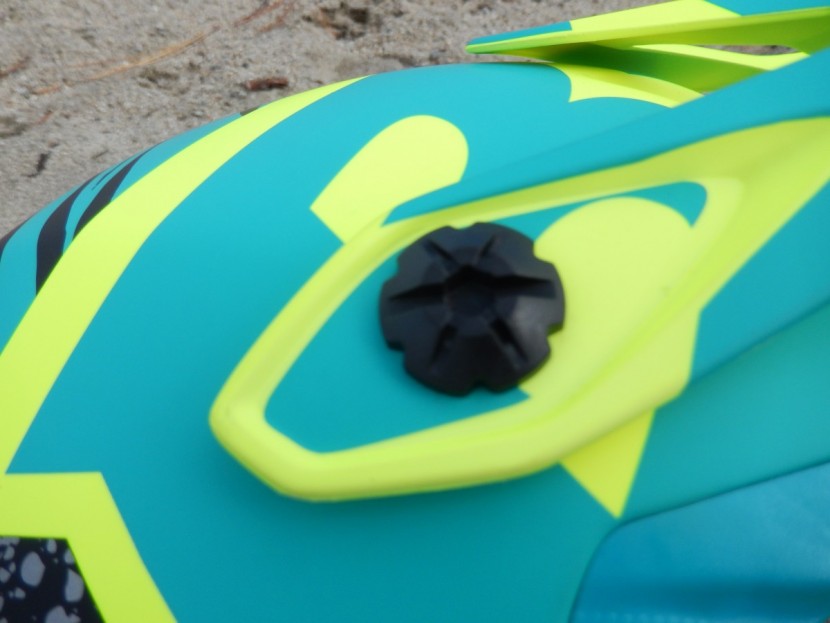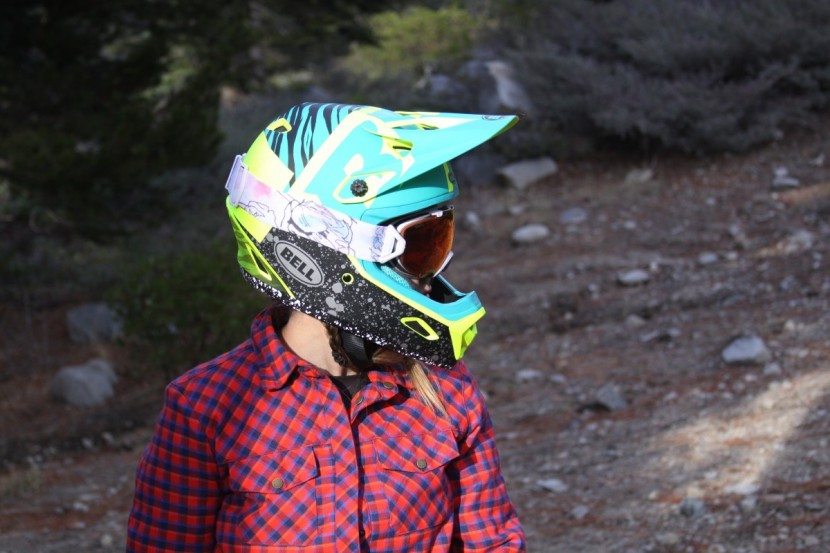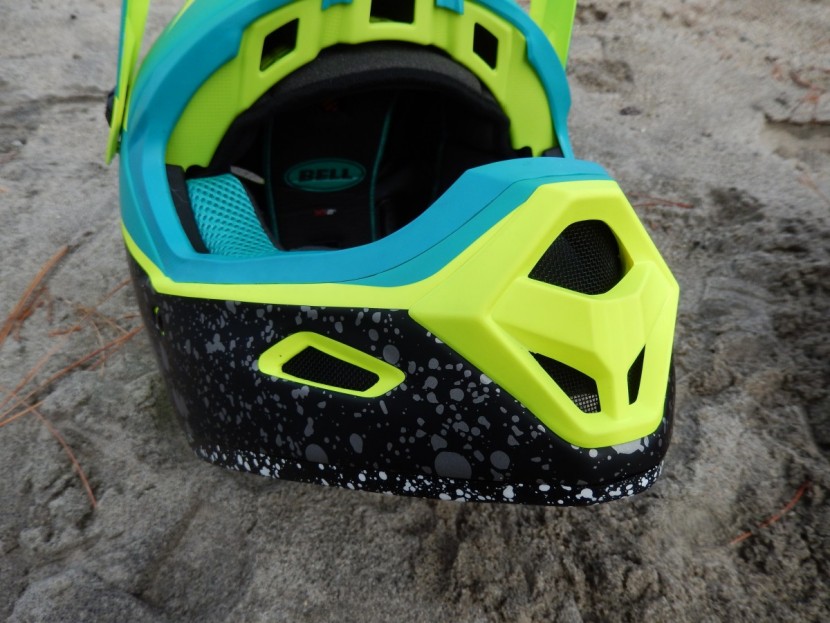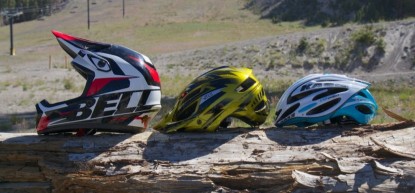Bell Transfer-9 Review
Our Verdict
Our Analysis and Test Results
The Bell Transfer is not lacking in vibrant colors that's for sure! If you have a concern about having a flimsy or weak helmet, the Transfer would be a great option. One thing that stands out with the Transfer is that uses the same fabric as the comfortable Bell Full 9. The secure fit along with the soft liner gives the Transfer a high rating in our testing. This helmet doesn't win an award, but it will take care of that noggin at half the cost of a carbon lid.
Comfort
The Transfer-9 is the most comfortable full-face we've ever used to protect our CPUs. The interior of this helmet is padded with well-placed, dense open-cell foam padding. Bell covered the foam padding with a cozy material that we would describe as a cross between velvet and terry cloth. Unlike other velvety interiors, the lining of this helmet does a good job of wicking sweat away from the head. We found this especially true in the brow area where the Transfer uses a vast band of padding covered in this material to keep sweat from running down your face. All of these things combine for not only a very plush feel but also a very snug fit. The Transfer did not bounce around on our heads no matter how much chunder we rolled through. The incredible thing about this helmet is the blend of fit and comfort.
Visor
The Transfer's visor is big and wide, which makes it one of the best sun, mud, or rain shields in our test. The Transfer lacks a center slider and adjustment screw like those found on the majority of visors.
After testing many different helmets, we came to prefer helmets which have a center adjustment tab and thumbscrew. The lack of the third screw means that the two side screws need to be cranked tight to prevent the visor from jiggling while riding. Adjusting this visor on the fly is not as easy as helmets with a center thumbscrew.
We prefer more full visors, which allow for the eyes to be shielded from the sun especially when leaning into banked corners, and this visor does just that. It is also the perfect length, any longer and it would be a sail on windy days or at Mach speeds. The Transfer's big visor also gives it a very moto look. Not surprising since the Transfer-9 and Full-9 are modeled after Bell's top-shelf moto lid, the Moto-9.
Weight
This is the heaviest helmet in our test. Our size medium test helmet tipped our digital scale at 45.1 ounces. The snug and secure fit somewhat offset the weight of this lid, but there is no way around it, this thing is a tank, and the extra weight is noticeable while riding.
The Bell Full-9, which is the carbon version of the Transfer, is five ounces lighter. This puts it on par with the lighter lids in our test, but the Full-9 costs twice as much, at $400. That's $200 to shave five ounces. We're not sure if that's the most cost-effective way to cut grams, but there is not likely a place you would notice an extra five ounces more than on your head.
Ventilation
The Transfer-9 scored similarly to the majority of the helmets we tested in overall ventilation. This is impressive because the Transfer has a much snugger fit than nearly all of the others. Normally a snug fitting helmet would equate to less airflow and less overall ventilation, but Bell did an excellent job of designing the Transfer's ventilation system. Similar to many other full-face helmets, the Transfer has an overbrow vent system designed to take in cool air at the front of the helmet.
Unlike many of the designs out there, the Transfer's overbrow vents do promote airflow through the helmet. The three wide-open intake ports above the brow area of the helmet are connected with well-sculpted interior air channels and gaps in the interior padding. Our testers agree that the Transfer is much cooler on the bike than they would have expected from such a snug braincase.
Protection
This helmet meets the CPSC 1203 and CE EN 1078 standards for cycling helmets sold in the US and Europe. It also meets the more stringent ASTM-F1952, which we think downhill riders should consider as a requirement in a helmet. The Transfer is also certified to ASTM's 2032-06, which is standard for BMX helmets.
The Transfer is compatible with the aftermarket Eject Helmet Removal System, which has been around for a while in power sports helmets. This system consists of an air bladder which sits deflated in a shallow pocket molded into the polystyrene at the top of the helmet. The air bladder is connected to a small inflation tube that runs out the back of the helmet via a small channel in the polystyrene. Inflating this system allows emergency responders to more easily remove it without causing further injury to the critical cervical spine in the event of a significant crash. The pocket and air tube channel that make this helmet compatible with this system will go unnoticed if you choose not to purchase and install the Eject system. The system sells for around $50-$60; however, it can be hard to find online. Not sure if this system is going to catch on in mountain biking, but it seems like a good idea to us.
Extras
The most intriguing extra feature of the Transfer is the Eject Helmet Removal System which we've explained above in the Protection section. The Transfer's second coolest extra is the included camera mounting system, which is different from the integrated mount found on the Full-9. The Transfer's system consists of an adhesive receiver which accepts a breakaway mounting plug that attaches to the camera. The helmet comes with a GoPro compatible plug and a Contour plug (if you happen to be one of the five people on the planet that own a Contour). We found that adhesive mounts produce slightly less jiggly footage than snap in mounts like the one found on the Giro Cipher or the Bell Full-9.
The Transfer has headphone pockets and channels to route the cables. Bell calls this feature Soundtrax. The Soundtrax pockets will accept most helmet compatible headphones. One last thing, our test helmet also came with a nice bright red storage sack which we promptly tossed on the shelf and forgot about. You could store the helmet in this bag, but we ain't got time for that.
Durability
For starters, it has a very nice clear coat, which kept the helmet looking glossy and fresh. We did notice a tiny bit of scuffing where the visor contacted the helmet, but it was minimal compared to other helmets. The trim gaskets which cover the edges of the shell in the face window and at the bottom are an area of failure like the TLD D3 we tested, but not with the Transfer. This helmet uses flexy vinyl trim that proved to be durable and well bonded to the helmet.
Best Application
We think this secure helmet is ideal for trying new lines, stepping up your game, and general lift-assisted downhill riding.
Value
The Transfer-9 is great value. You receive all the safety features that you would in a carbon but at the fraction of the price.
Conclusion
The Bell Transfer is an excellent bang for your buck. The Transfer-9 is a trickle down of the Full-9, which benefits from technology afforded by its older motocross brother, the Moto-9. This helmet is packed with features at just half the cost of other high-end full-face helmets.


